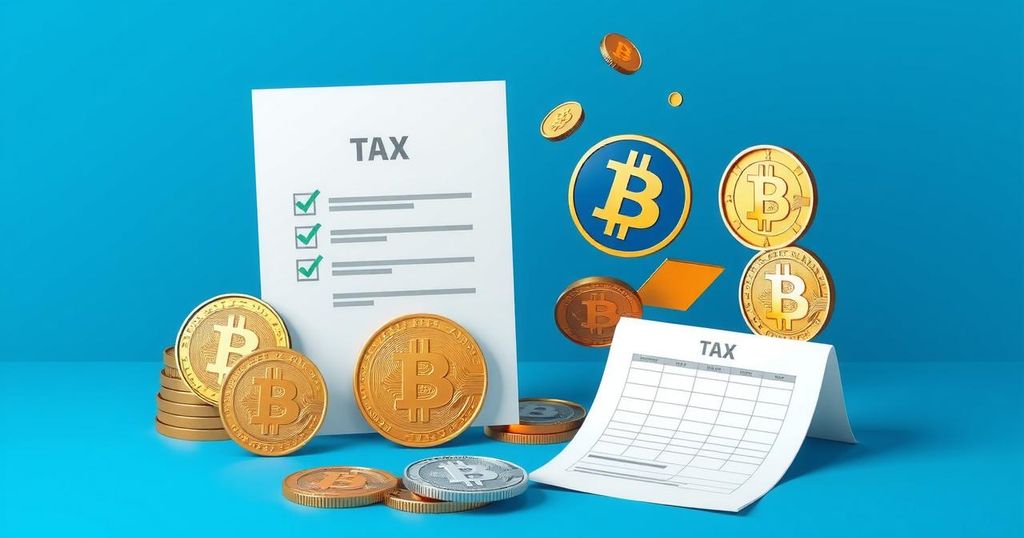Minimal Usage of Cryptocurrency for Tax Payments in Colorado
Colorado’s acceptance of cryptocurrency for tax payments has resulted in minimal usage, with only 0.0005% of income tax collected since 2022 being paid in crypto. The state, initiated by Governor Jared Polis, facilitates payments via PayPal’s Crypto Hub, and experts suggest the adoption of stablecoins may rise in future transactions, contrasting with Bitcoin’s status as a store of value.
In Colorado, only a minuscule 0.0005% of the $11 billion collected in income tax since 2022, equating to roughly $57,000, has been contributed through cryptocurrency. This crypto payment option was initiated in September 2022 under Governor Jared Polis. Reports from the Colorado Department of Revenue reveal just eight payments in 2022 totalling $16,426 and a rise to 22 payments worth $23,241 in 2023; however, this declined to $17,544 over 48 payments in 2024.
Elizabeth Kosar, communications director of the Colorado Department of Revenue, highlighted that Colorado doesn’t actually hold cryptocurrency; rather, taxpayers utilise the PayPal Cryptocurrencies Hub to convert their crypto assets into U.S. dollars at the payment point. This detail challenges the perception of significant cryptocurrency payment usage in the U.S., despite research indicating 20% of American voters have interacted with crypto.
Bitcoin proponents are not surprised by the low utilisation of crypto in tax payments, with established tokens like Bitcoin often viewed more as stores of value than transactional mediums. Lou Kerner, founder of CryptoMondays, reinforces this notion by quoting Michael Saylor: “the one rule of Bitcoin is to NEVER sell (or spend) your Bitcoin.”
Since the launch of crypto tax payments in Colorado, Bitcoin’s price surged by approximately 320%, and it has maintained positive annual returns (30% in 2023 and 125% in 2024). Utah also allows crypto payments for taxes, while Louisiana permits crypto for various fines and services. Detroit plans to accept digital asset tax payments using PayPal by mid-2024.
Despite the increasing global cryptocurrency ownership, experts, including Kerner, doubt that a notable proportion of tax payments will involve store-of-value tokens like Bitcoin. He predicts that stablecoins will become the primary means of transaction due to their efficiency.




Post Comment